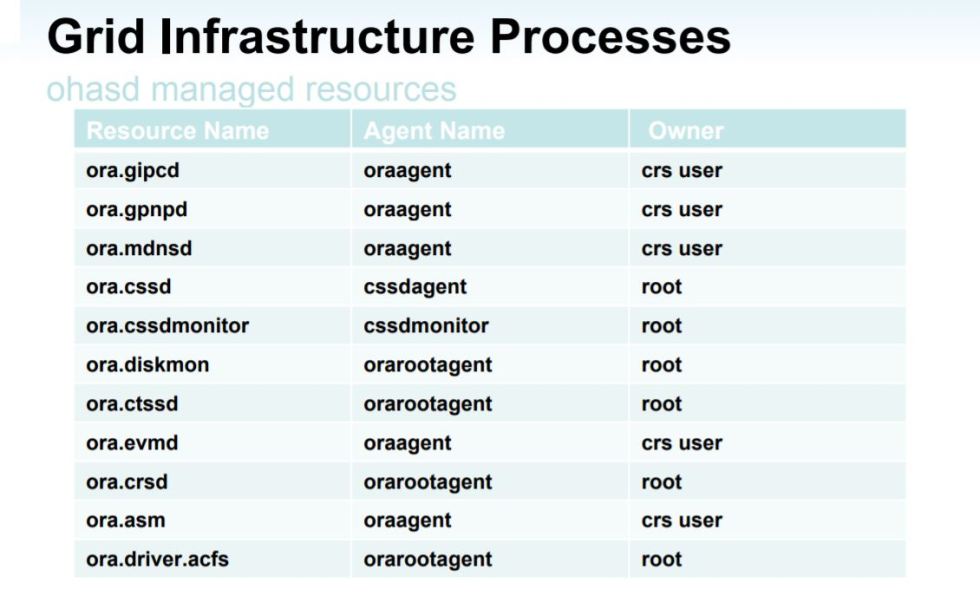Here is the brief explanation that how the clusterware brings up step by step .
When Clusterware starts three files are involved.
1. OLR – Is the first file to be read and opened. This file is local and this file contains information regarding where the voting disk is stored
and information to startup the ASM. (e.g ASM DiscoveryString)
2. VOTING DISK – This is the second file to be opened and read, this is dependent on only OLR being accessible.
ASM starts after CSSD or ASM does not start if CSSD is offline (i.e voting file missing)
How are Voting Disks stored in ASM?
Voting disks are placed directly on ASMDISK. Oracle Clusterware will store the votedisk on the disk within a disk group that holds the Voting Files.
Oracle Clusterware does not rely on ASM to access the Voting Files, which means Oracle Clusterware does not need of Diskgroup to read and write on ASMDISK. It is possible to check for existence of voting files on a ASMDISK using the V$ASM_DISK column VOTING_FILE.
So, voting files not depend of Diskgroup to be accessed, does not mean that the diskgroup is not needed, diskgroup and voting file are linked by their settings.
3. OCR – Finally the ASM Instance starts and mount all Diskgroups, then Clusterware Deamon (CRSD) opens and reads the OCR which is stored on Diskgroup.
So, if ASM already started, ASM does not depend on OCR or OLR to be online. ASM depends on CSSD (Votedisk) to be online.
There is a exclusive mode to start ASM without CSSD (but it’s to restore OCR or VOTE purposes)
As per Oracle Documentation
The full description, the really unreadable diagram and/or any updates to this you can find it in MOS Document 1053147.1
Click on the image below to see the full size

Level 1: OHASD Spawns:
- cssdagent – Agent responsible for spawning CSSD.
- orarootagent – Agent responsible for managing all root owned ohasd resources.
- oraagent – Agent responsible for managing all oracle owned ohasd resources.
- cssdmonitor – Monitors CSSD and node health (along wth the cssdagent).
Level 2: OHASD rootagent spawns:
- CRSD – Primary daemon responsible for managing cluster resources.
- CTSSD – Cluster Time Synchronization Services Daemon
- Diskmon
- ACFS (ASM Cluster File System) Drivers
Level 2: OHASD oraagent spawns:
- MDNSD – Used for DNS lookup
- GIPCD – Used for inter-process and inter-node communication
- GPNPD – Grid Plug & Play Profile Daemon
- EVMD – Event Monitor Daemon
- ASM – Resource for monitoring ASM instances
Level 3: CRSD spawns:
- orarootagent – Agent responsible for managing all root owned crsd resources.
- oraagent – Agent responsible for managing all oracle owned crsd resources.
Level 4: CRSD rootagent spawns:
- Network resource – To monitor the public network
- SCAN VIP(s) – Single Client Access Name Virtual IPs
- Node VIPs – One per node
- ACFS Registery – For mounting ASM Cluster File System
- GNS VIP (optional) – VIP for GNS
Level 4: CRSD oraagent spawns:
- ASM Resouce – ASM Instance(s) resource
- Diskgroup – Used for managing/monitoring ASM diskgroups.
- DB Resource – Used for monitoring and managing the DB and instances
- SCAN Listener – Listener for single client access name, listening on SCAN VIP
- Listener – Node listener listening on the Node VIP
- Services – Used for monitoring and managing services
- ONS – Oracle Notification Service
- eONS – Enhanced Oracle Notification Service
- GSD – For 9i backward compatibility
- GNS (optional) – Grid Naming Service – Performs name resolution
List the GI Processes
